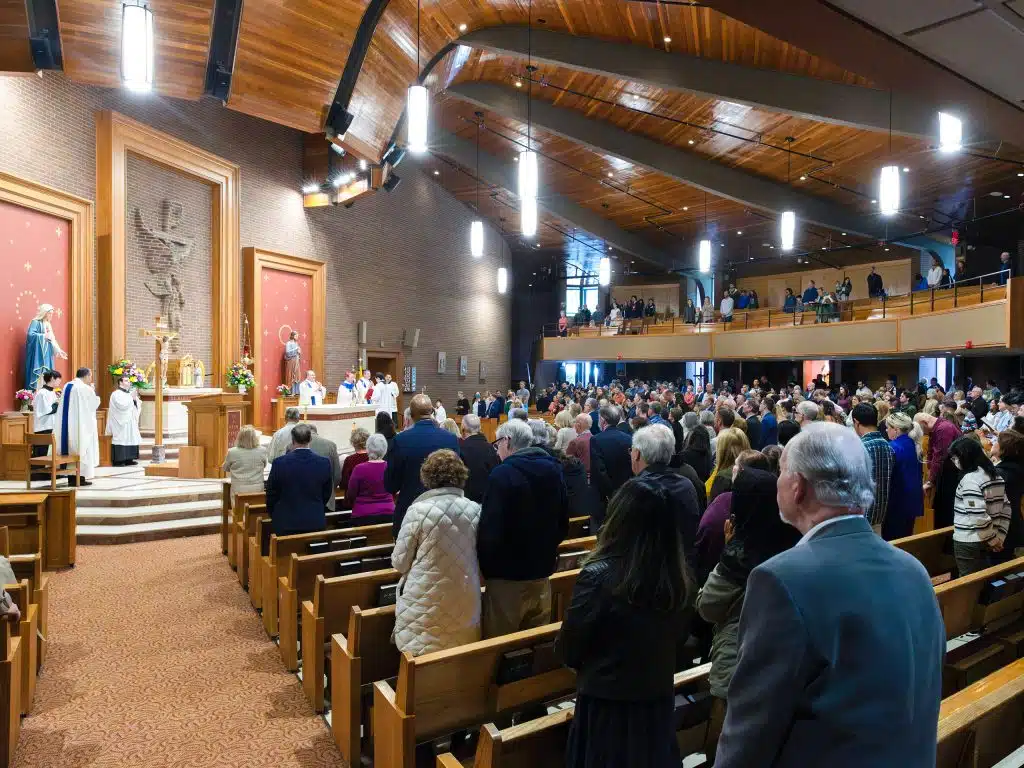If you’re the parent of a child with autism, or if you are a person with autism, you are aware that every month is autism awareness month. But for just one month per year, April, the general population takes the opportunity to explore what autism is and how it impacts life. Let’s take it one step further and explore what it means to have autism and be Catholic, and how we can increase our understanding, compassion and kindness.
What is autism?
Autism, or autism spectrum disorder (ASD), refers to a broad range of conditions characterized by challenges with social, emotional and communication skills. It was first described as a psychological disorder in 1911, further investigated in the 1940s and classified as a disorder in 1980. In 2013, the American Psychiatric Association established that autism comprises a broad spectrum of behaviors and conditions varying in characteristics and severity.
Autism is a complex developmental disability linked to neurological differences in the brain, often characterized by delayed language and movement skills, delayed cognitive or learning skills, and hyperactive, impulsive and/or inattentive behaviors.
The causes of autism continue to be investigated, and some studies indicate that autism may be the result of genetic mutations combined with environmental factors.
But people with autism can be creative, diligent, focused and able to find unusual solutions to problems. They may be talented artists, math experts, computer geniuses and creative designers. But education, including religious education, needs to be designed to meet specific needs.
Inclusive religious education
So, how do people with autism navigate our complex world and religion? Through patience, routines, simple language and clarity, anything can be broken down into understandable concepts using something called social stories.
Social stories use a minimum of words to explain an experience or event. Pictures help.
A social story for receiving Communion from Simply Catholic might look like this, with pictures included: My family goes to Mass. We sit in the pew. Our priest comes to Mass. We pray together. We listen to the readings. We listen to Father ____ teach us about Jesus. We offer our gifts to Jesus. Father ____ blesses the bread and wine. The bread and wine become Jesus. I wait my turn to receive Jesus in Communion
The priest says, “The body of Christ.” I say “Amen.” I open my mouth (or) hold out my hand. The priest places the host (bread, Jesus’ body) on my tongue (or) the priest places the host (bread, Jesus’ body) in my hand. Then I eat. The priest offers me the cup. I take a small sip. I go back to my pew, and we pray. I thank Jesus for loving me. After everyone has a turn to receive Jesus, the priest blesses us. We sing a song. Then we leave.
Catholics and people of faith are becoming more aware of and welcoming toward people with autism, leading to more effective teaching styles, accommodations, and education in parishes. Adults with autism are writing about their experiences in ministry and Catholic publishers are creating faith formation curricula designed to meet different learning needs. Catholic religious education programs — such as Special Religious Development (SPRED), the Rose Fitzgerald Kennedy Program and Loyola Press — are designed to meet the specific needs of people with autism and other developmental and cognitive differences. And yes, people with autism can and should receive the sacraments.
So, when you see a family at Mass with a child or young adult wearing noise-reducing ear protectors, or reading a special book explaining the Mass, or if a child makes strange noises, covers their ears during music and singing, or can’t sit still or pay attention, a little compassion and understanding (and maybe an offer of assistance) will go a long way toward welcoming and embracing differences. And remember, those who love, teach, and care for and about people with autism deserve our patience and respect for braving the sometimes unforgiving world that we all share.
Pope Francis spoke to a group of children with autism at the Vatican in September 2021 and said: “God created the world with a wide variety of flowers of all kinds of colors. Each flower has its own beauty, which is unique. Also, each one of us is beautiful in the eyes of God, and he loves us. This makes us feel the need to say to God: thank you!”
Let’s all thank God for the unique qualities he saw fit to give to people made in His likeness and image.
Emanuel is coordinator for diocesan Special Needs Ministries.
Find out more
For additional resources, go to: National Catholic Partnership on Disability at ncpd.org/disability-ministry/autism-spectrum-disorder; Autism Society of America at autism-society.org; Autism Speaks at autismspeaks.org; Simply Catholic at simplycatholic.net/2009/02/10/first-communion-social-story; and USCCB Guidelines for the Celebration of the Sacraments with Persons with Disabilities at usccb.org/committees/divine-worship/policies/guidelines-sacraments-persons-with-disabilities.



The Good Shepherd